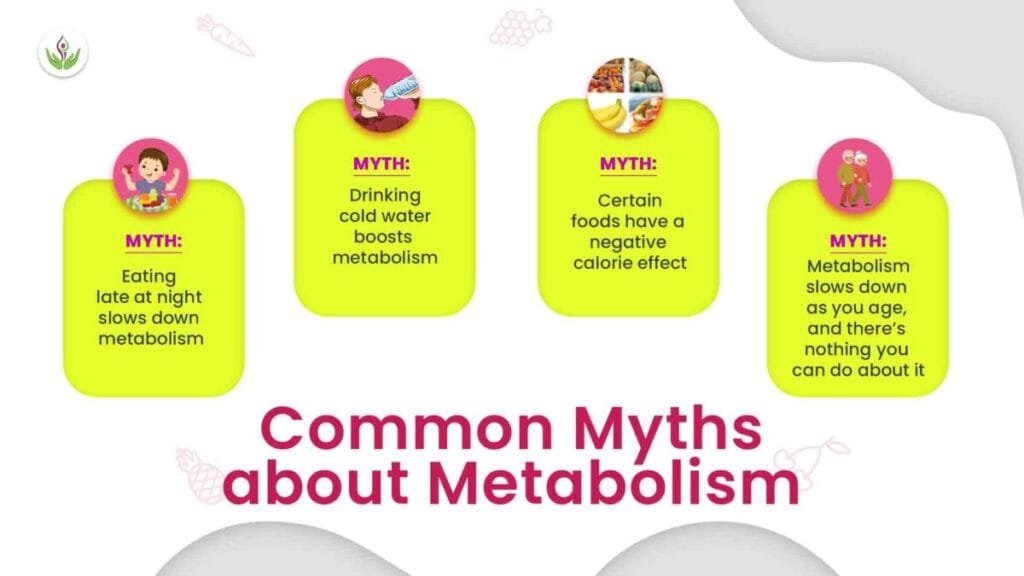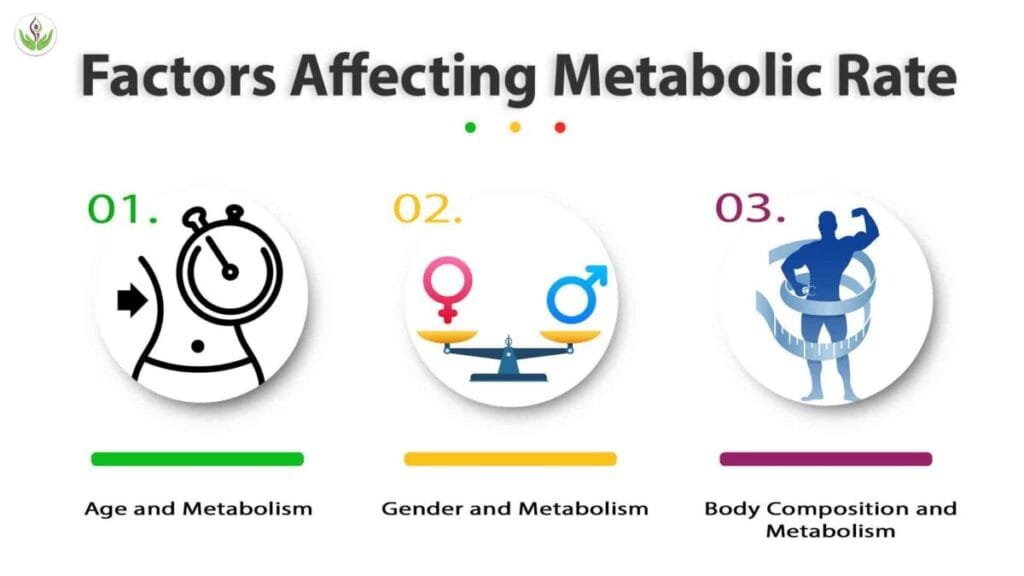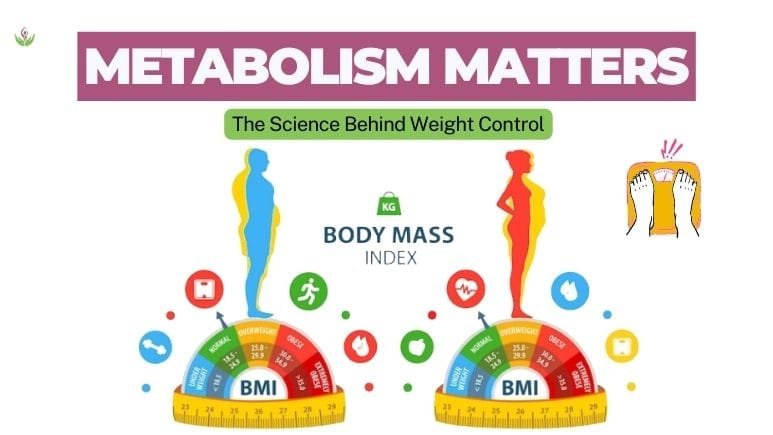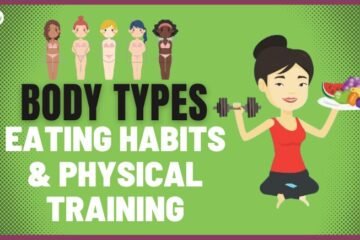Know about Metabolism to Lose Weight
I am a cosmetic surgeon based in Delhi, and I have met many patients who struggle to maintain a healthy weight. Our discussions often highlight the importance of metabolism. Many individuals believe they cannot change their “slow metabolism” as it is the reason behind their increasing weight.
Metabolic processes are very complex and continually changing. It affects every aspect of general health, including weight loss. It goes beyond mere language. Learning the science of metabolism, dispelling common misconceptions, and being given certain techniques can help you take care of your metabolic health.
To better understand weight challenges and their causes, you may find this article on Reasons Behind Gaining Weight insightful.
The Fundamentals of Metabolism
Your food fuels your body with a process known as combustion. These factors are responsible for all your bodily functions, including respiration, circulation, neural transmission, and cell regeneration. Metabolism comprises two primary components:
- Anabolism: This makes cells youthful and growable.
- Catabolism: Here carbohydrates and lipids break down to provide energy.
BMR or Basal metabolic rate
Basal Metabolic Rate (BMR) measures the calories required for the body’s fundamental functions during total rest after fasting. Key factors include:
- Body Composition: Lean muscle mass burns more calories than fat, even at rest.
- Age and Hormones: Changes in hormones and muscle loss can lower BMR with age.
- Gender Differences: Men’s greater muscle mass typically results in a higher BMR than women.
If you are curious about the impact of body structure on metabolism and health, explore this guide on Body Types, Eating Habits, and Physical Training.
Let me now include the links to the referenced articles for internal linking. Here is the updated content with proper anchor text and corresponding links embedded naturally:
Case Study: How Metabolism Affects Weight Loss
Hi, I am Dr. Sandeep Bhasin. Allow me to share insights from a case study that explains how metabolism plays a role in weight loss. Many of my patients feel stuck when their weight loss slows down. This study reveals why that happens and how to manage it better.
1. Metabolism Adjusts to Fewer Calories
When you cut calories, your body reacts to conserve energy. A study in the American Journal of Physiology-Endocrinology and Metabolism shows that metabolic changes can make your body more efficient, slowing weight loss. This natural adjustment often causes plateaus during dieting. Understanding this can help you plan smarter strategies.
2. Visceral Fat and Energy Levels
Visceral fat significantly impacts your metabolism and energy. Research published in the European Journal of Clinical Nutrition found that individuals with higher visceral fat levels had lower resting energy. As they lost this fat, their energy levels improved. Focusing on visceral fat reduction through nutrition and exercise can yield great results.
3. Hormones Affect Hunger
Leptin, a hormone that regulates hunger, can cause issues for weight loss. Some people develop leptin resistance, making it harder to feel full. A study in The Journal of Clinical Endocrinology & Metabolism found that managing leptin resistance improves appetite control and supports better weight outcomes. Hormonal imbalances like this might explain why some people struggle, even with a healthy diet.
Most Typical Myths Regarding Metabolism

Myths about metabolism irritate and perplex many individuals.
Myth 1: Eating late at night makes you fat.
When one eats does not have much bearing on an individual’s metabolic pace. More important are your daily calorie count and level of activity.
Myth 2: Cold water increases metabolic speed.
Drinking cold water may burn some more calories, but it won’t help you meet your weight reduction targets.
Myth 3: Some foods burn more calories.
People cannot consume any meal with a negative calorie effect. Cutting out meals high in protein speeds up your metabolism significantly.
Myth 4: Metabolism stays the same throughout time.
Your metabolic rate is significantly influenced by what you eat, how much sleep you receive, and how much you exercise, even if genes play a role.
Factors Affecting Metabolic Rates

Gender and age
Changing hormones and the usual decrease of muscle mass lead people’s metabolism to slow down as they age. That does not guarantee, nevertheless, that you will surely gain weight. Regular strength exercise and a good diet can enable you to halt much of this drop.
Men have higher lean muscle mass than women, so their metabolism is often quicker. Menopause hormonal changes might potentially influence a woman’s metabolism. She may, however, manage these changes with a sensible diet and some exercise.
If you are looking for additional weight management strategies, read about The Difference Between Weight Loss and Inch Loss.
Composition of the Human Body
Even at rest, your muscles burn more calories than your fat. This is the primary reason bigger muscles are often associated with a quicker metabolism. Your exercise should include resistance training if you want to raise your basal metabolic rate (BMR).
Thyroid Function
The thyroid gland’s job is to evaluate thyroid compounds that regulate metabolism. Two medical disorders that may greatly affect metabolic rate are
- Hypothyroidism: an underactive thyroid
- Hyperthyroidism: an overactive thyroid.
See a doctor if you have concerns about thyroid diagnosis and treatment.
The Role of Physical Activity in Metabolism

Exercise and metabolism
Consistent energy levels, steady weight management, effective digestion, and normal bowel motions define a good metabolism. Aerobic exercise raises your heart rate and the oxygen consumption by your body. This fuels movement and helps you burn calories.
High Intensity Interval Workout
Short bursts of relatively intense exercise mixed with rest periods define a high-intensity interval training (HIIT) technique. The expression “too much oxygen intake after exercise, or EPOC,” explains how this kind of training might lead to calorie burning for hours after a run. For more details, check out The Benefits of High-Intensity Workouts.
Non-Exercise Activity Thermogenesis
Daily activities like walking, gardening, and moving burn calories called thermogenesis, or NEAT. Every day you may burn a lot more calories by climbing stairs rather than the elevator. Little adjustments added together may have significant impacts.
To understand how non-surgical options might assist your weight management journey, explore 3D Lipo: A Celebrity-Approved Non-Surgical Solution for Weight Loss.
Elements influencing the functioning of metabolism
A person’s diet greatly influences their metabolic speed. Consider these issues:
Food’s thermic effects (TEF) and proteins
Eating, absorbing, and digesting meals strong in protein requires more energy than those heavy in fats and carbohydrates. This warming impact might cause your metabolism to somewhat speed up, and you may feel full for longer.
Good fats and carbohydrates
Many meals include complex carbs, which provide energy all day without boosting your blood sugar. Good sources of healthy fats, nuts, and avocados help regulate hormones and stabilize energy levels.
Diet
Regular eating will enable you to maintain constant blood sugar levels and provide you with energy all day.
To further understand how diet impacts body fat, you can visit Things to Know About Body Fat and Unwanted Body Fat.
How to Lose Weight with Slow Metabolism?
Your metabolism may be sluggish, but you may still shed weight. You could just have to learn fresh approaches to completing it.
- Targeting strength exercises can help you to increase your basal metabolic rate (BMR).
- Burn calories even at home with high-intensity workouts.
- Getting adequate protein prevents the breakdown of your muscles and makes you feel full for longer.
- Add extra movement into your daily practice to raise your NEAT.
Hormonal and Environmental Influences on Metabolism

Hormones That Impact Metabolism
- Insulin: Regulates blood sugar, and imbalances can lead to weight gain.
- Cortisol: Chronic stress elevates cortisol levels, promoting fat storage, particularly around the abdomen.
- Leptin and Ghrelin: These hormones control hunger and fullness. Disruptions can lead to overeating.
Environmental Factors
Brown fat, a kind of metabolism that burns calories to generate heat, may be active in cold weather. Conversely, environmental pollution or long-term anxiety may slow down metabolic activity.
Conclusion
The activities you engage in and the surroundings you live in constantly affect your metabolism. Knowing how it works will enable you to adjust to meet your weight and health goals. Being a plastic surgeon, I understand how crucial it is to act consistently and deliberately to make people’s appearance and quality of life better.
If you are ready, take responsibility for your health. Start little measures towards improvement. Continue to exercise regularly, control your anxiety, eat healthily, and build your strength. Should you want assistance, you should visit Care Well Medical Centre. Together, we can raise your happiness and general wellness.
FAQs (Frequently Asked Questions)
As we age, our metabolism tends to slow down. This decrease in metabolic rate is primarily due to a loss of muscle mass and hormonal changes. However, adopting a healthy lifestyle that includes regular exercise and a balanced diet can help mitigate the effects of age-related metabolic decline.
While no specific food can magically boost metabolism, some foods may have a slight thermogenic effect, meaning they require more energy to digest. Examples include protein-rich foods, spicy foods, and those containing caffeine. However, the impact of these foods on metabolism is relatively modest, and overall calorie balance remains the primary determinant of weight control.
Staying hydrated is essential for overall health, but the effect of water on metabolism is minimal. Drinking water may temporarily increase calorie expenditure due to the energy required to heat the water to body temperature, but the impact is not significant enough to rely on water alone for weight control.
Yes, genetics can influence metabolism and weight control. Some individuals may have a naturally higher or lower metabolic rate due to genetic factors. However, it’s important to remember that lifestyle choices, such as diet and exercise, still play a significant role in weight management regardless of genetic predispositions.
Yes, muscle is more metabolically active than fat. It requires more energy to maintain, which means that individuals with higher muscle mass have a higher resting metabolic rate. Incorporating strength training exercises into your fitness routine can help increase muscle mass and support weight control efforts.
Certain medications, such as some antidepressants, antipsychotics, and corticosteroids, can affect metabolism and contribute to weight gain. If you suspect that your medications are impacting your weight, it’s essential to consult your healthcare provider to explore potential alternatives or strategies to manage weight.
References:
- PubMed. (2023). Obesity and MASLD: Weight loss as a treatment for metabolic dysfunction-associated liver disease.
Retrieved from https://www.metabolismjournal.com/article/S0026-0495%2824%2900164-1/fulltext - BMC Medicine. (2023). Dietary carbohydrate and calorie restriction for weight loss in obese individuals: A trial.
Retrieved from https://bmcmedicine.biomedcentral.com/articles/10.1186/s12916-023-02869-9 - JAMA Internal Medicine. (2020). Time-restricted eating and its effects on weight loss and metabolism.
Retrieved from https://jamanetwork.com/journals/jamainternalmedicine/fullarticle/2771095 - Metabolism: Clinical and Experimental. (2019). Dietary strategies for weight loss and long-term maintenance.
Retrieved from https://www.metabolismjournal.com/article/S0026-0495%2819%2930008-3/fulltext - The American Journal of Clinical Nutrition. (2023). Energy balance and body weight regulation.
Retrieved from https://ajcn.nutrition.org/article/S0002-9165%2823%2902757-0/fulltext








